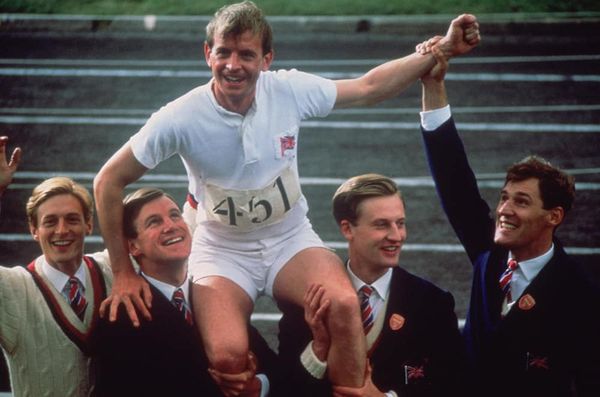Eye For Film >> Movies >> Chariots Of Fire (1981) Film Review

Twenty years is a long time in movies. Chariots Of Fire hasn't weathered too well.
It won a clutch of Oscars and had audiences weeping in the aisles. Colin Welland, who wrote the script, overreached himself at the award ceremony by announcing, "The British are coming!" They didn't, but that's another story.

Watching Hugh Hudson's affectionate tribute to a lost age of sporting chivalry, after being captivated first time around, is to walk in the shadow of deja-vu. The slow motion seems sentimental now, and overused. The pace is snail's.
Ian Charleson's performance, as Eric Liddell, the missionary from Edinburgh, who refused to race on the sabbath and almost caused an international incident, stands out, while Ian Holm, as Harold Abrahams's coach, is diminished in hindsight.
Nigel Havers, as the true jokey amateur, Lord Andrew Lindsay, looks incredibly young and Ben Cross, as Abrahams, is intense, as if that's all he can be. Alice Krige, as his posh girlfriend, stares longingly into the distance, as if there might be a good line waiting for her over the next page - no chance! Cheryl Campbell, as Liddell's sister, is given more leeway to suggest something so shocking it can only be whispered, concerning her feelings for her brother.
Essentially, the film is about the success of the British contingent at the 1924 Olympic Games in Paris, or rather three of them, a Christian Scot, a first generation Lithuanian Jew and an aristocrat who smokes too much. Hudson's discretion as director mirrors the cauterised emotions of the ex-public school boys, who make up the majority of the squad.
Looking at the film today, 20 years on, it seems obsessively class-conscious. There are endless scenes of young men in white ties at formal dinners, usually at Cambridge, where the college bigwigs, played by John Gielgud and Lindsay Anderson, are portrayed as bigots and snobs.
Vangelis's music, which so often is mocked whenever the film is mentioned these days, remains as powerful and beautiful as ever. If it wasn't for those ya-ya accents and an inability to express feeling - "I'm 24," Abrahams says. "And I've never known contentment" - the film might have stood the test of time.
It is a period piece, after all, like those J Arthur Rank movies of the Forties. If the ruling classes were racist and arrogant, so be it. In a subtle way, Hudson and Welland beat a drum for socialism.
Reviewed on: 28 Aug 2001


















